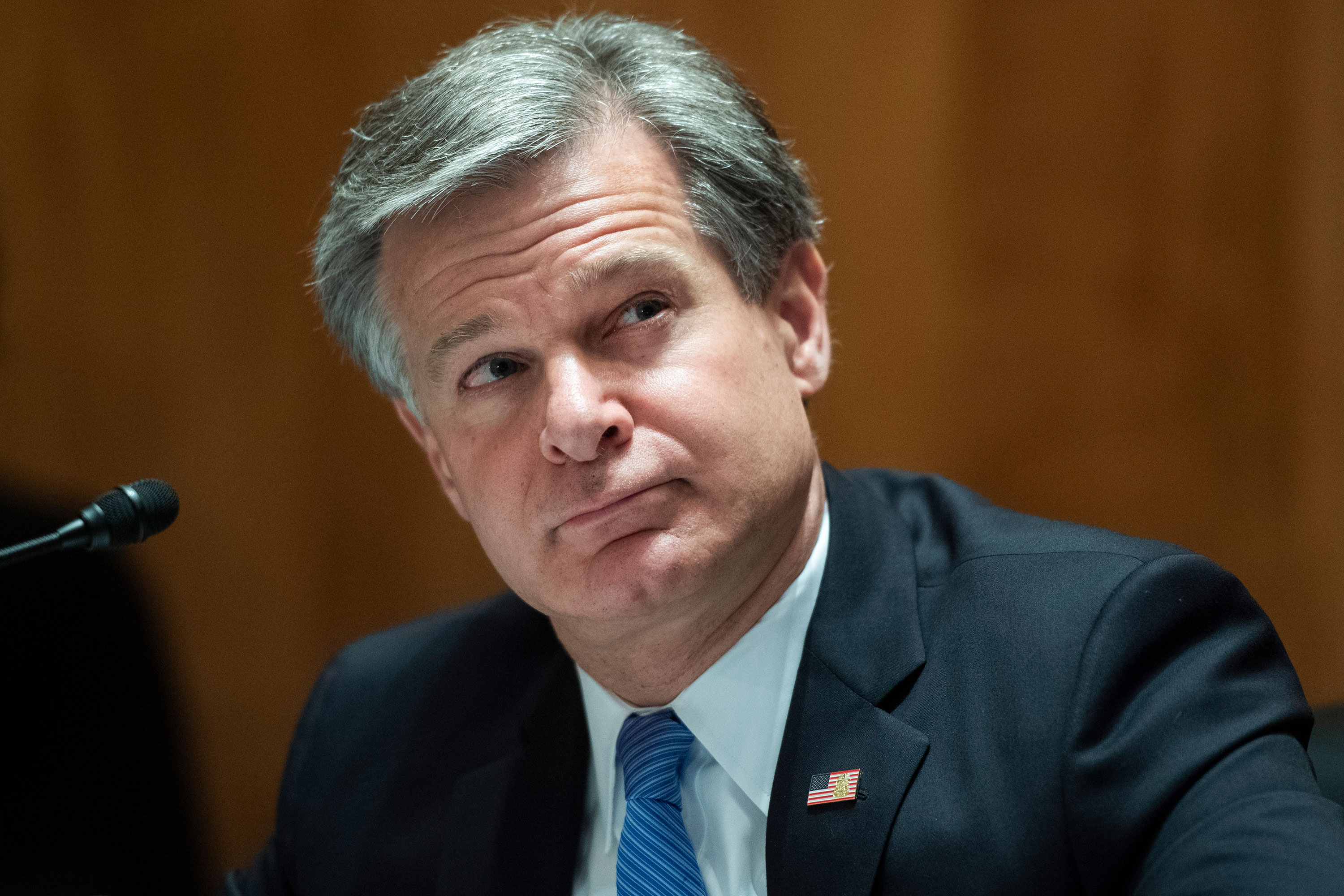Donald Trump's Maze of Contradictions on FBI Director Christopher Wray
The relationship between former President Donald Trump and FBI Director Christopher Wray has been an enigma, marked by both praise and condemnation. This essay critically examines the complexities of their interactions, exploring the contrasting perspectives, data points, and real-life examples that have shaped this tumultuous relationship.
Trump's Initial Praise
Initially, Trump was effusive in his praise of Wray, whom he appointed in 2017. Trump lauded Wray's "tremendous reputation" and "impeccable credentials." At a press conference, Trump declared that Wray "is going to be a great leader, a great director," highlighting his "integrity" and "strong character."
Shifting Sentiments and Public Criticism
However, Trump's sentiments soon turned sour. As the Russia investigation intensified, Trump began to publicly criticize Wray, expressing frustration with the FBI's handling of the probe. In 2019, Trump tweeted that Wray was a "total catastrophe," claiming that he was "protecting his boss," President Barack Obama, and the "Deep State."
Trump's attacks became increasingly personal. He disparaged Wray's "flip-flopping" and "confused" behavior. He even hinted at firing Wray, stating that he was "very disappointed" in him and that he "may do something about it."
Contradictory Statements
Trump's contradictory statements about Wray have added to the confusion surrounding their relationship. In 2020, Trump praised Wray's "sterling reputation," but later that year, he said that Wray had "failed to protect the country" from the "radical left."
This pattern of contradictory statements has made it difficult to discern Trump's true feelings towards Wray. Some have suggested that Trump's attacks were politically motivated, aimed at appeasing his base by discrediting the FBI and the Russia investigation.
Data Points and Real-Life Examples
Data points and real-life examples further illustrate the complexity of Trump's views on Wray. In a 2018 interview with Fox News, Trump said that he "had no problems" with Wray and praised his "integrity." However, in a 2019 tweet, Trump accused Wray of "spying" on his campaign.
In 2020, Trump fired Wray's deputy, Andrew McCabe, a move widely seen as a shot across Wray's bow. However, in the same year, Trump also offered Wray a second term, which Wray declined.
Expert Perspectives
Experts have offered varying perspectives on Trump's relationship with Wray. Some have argued that Trump's attacks were part of a broader effort to undermine the FBI and the rule of law. Others have suggested that Trump's behavior was driven by his own insecurities and narcissism.
Former FBI Director James Comey has said that Trump's attacks on Wray were "unprecedented" and "damaging to the rule of law." Comey has also accused Trump of trying to "bully" Wray into submission.
Journalistic Research
Journalistic research has also shed light on the Trump-Wray relationship. A New York Times article reported that Trump had offered Wray a deal in which Wray would remain in his position if he agreed to fire Deputy Attorney General Rod Rosenstein.
A Washington Post article revealed that Trump had threatened to fire Wray if he did not "straighten out" the FBI. The article also reported that Trump had considered replacing Wray with Rudy Giuliani.
Conclusion
The relationship between Donald Trump and FBI Director Christopher Wray has been marked by profound contradictions. Trump initially praised Wray but later attacked him publicly, accusing him of incompetence and disloyalty. Trump's contradictory statements and actions have made it difficult to discern his true feelings towards Wray.
The broader implications of this relationship are significant. Trump's attacks on Wray have eroded public trust in the FBI and the rule of law. They have also created a climate of fear and uncertainty within the FBI, where agents may be hesitant to investigate political figures for fear of reprisal.
The Trump-Wray relationship is a cautionary tale about the dangers of political interference in law enforcement. It is a reminder that the independence of the FBI and other law enforcement agencies is essential for a functioning democracy.
Read also:
Unlock The King Of Monsters: Godzilla Comes To Fortnite
Tesla's Model Y Reinvented In China: A Strategic Move To Dominate The EV Market
Elon Musk Exposed: Cosplaying The Ultimate Fanboy Extravaganza

